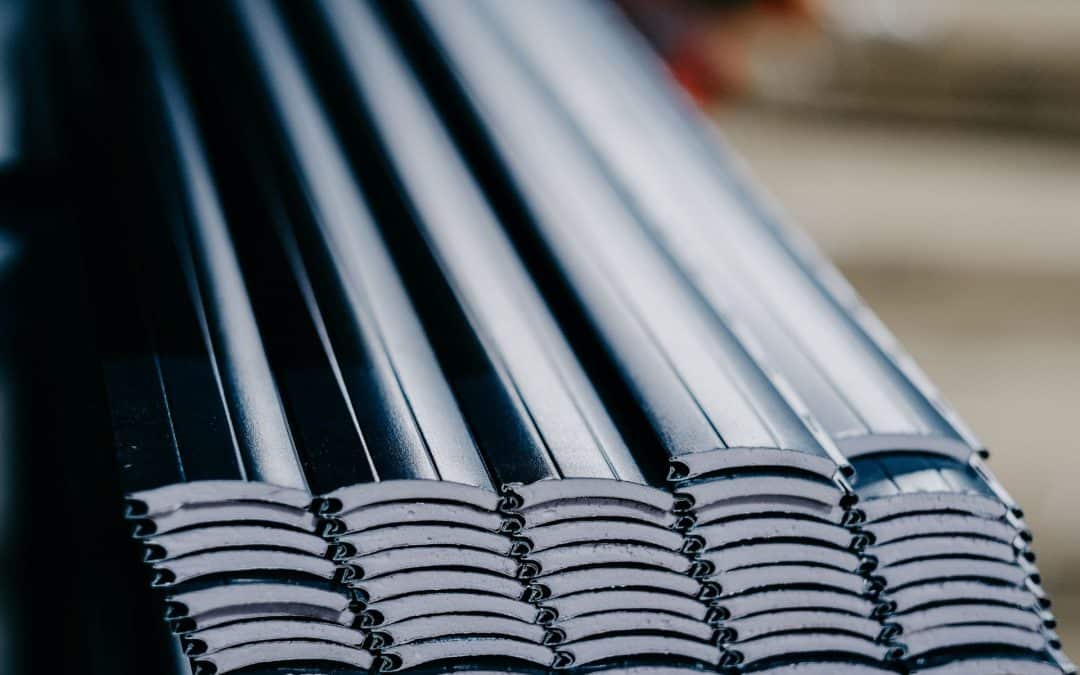Choosing the right roofing material for your business facility is a crucial decision that affects both the appearance and functionality of your building. The roof is one of the most important parts of any structure, providing protection from the elements and contributing to the overall efficiency of the facility.
A well-chosen roofing material can enhance the durability and longevity of your building. It also plays a significant role in energy efficiency. This can result in cost savings on utilities and reduce your carbon footprint. Different materials come with unique properties that make them suitable for varying needs and climates. Making an informed choice ensures that your roof will stand the test of time and meet the demands of your specific environment.
In this article, we will explore the factors to consider when selecting a roofing material for commercial buildings. We’ll also compare popular commercial roofing materials, discuss how climate and location affect roofing choices, and provide installation and maintenance tips for commercial roofs. Understanding these aspects will help you make a knowledgeable decision for your business.
Factors to Consider When Choosing Roofing Material for Commercial Buildings
When selecting the right roofing material for your commercial building, several key factors should guide your decision. First, think about durability. Commercial roofs need to withstand various weather conditions, from heavy rain and snow to high winds and extreme temperatures. Materials like metal and modified bitumen are known for their durability and can last for decades with proper maintenance.
Cost is another crucial factor. While the initial cost of some materials may be higher, their long-term benefits can provide better value. For example, a more expensive material that requires less maintenance and has a longer lifespan can be more cost-effective over time. Also, the installation costs should be considered, and whether the material can be easily installed by a professional team.
Energy efficiency is also important for commercial buildings. Roofing materials that reflect sunlight and provide good insulation can help reduce energy bills. Options like TPO (thermoplastic polyolefin) and EPDM (ethylene propylene diene monomer) provide excellent energy efficiency and can contribute to a more sustainable building.
Safety features should not be overlooked. Some commercial roofing materials are fire-resistant, which is crucial for protecting your business and employees. Make informed decisions about safety to ensure you meet local building codes and regulations.
Finally, think about the aesthetics of the roofing material. While functionality is paramount, the appearance of your roof also affects your building’s overall look. Choose a material that complements your building’s design and enhances its curb appeal.
Comparison of Popular Commercial Roofing Materials
Choosing the right roofing material involves comparing your options. Here are some popular materials commonly used for commercial buildings:
1. **EPDM Roofing**: EPDM is a durable synthetic rubber roofing membrane. It is known for its strength and resistance to the elements. It is also relatively easy to install and maintain, making it a cost-effective choice for many businesses.
2. **TPO Roofing**: TPO is a single-ply roofing membrane that offers great energy efficiency. It reflects sunlight and helps reduce energy costs. TPO is also durable and offers good resistance to dirt, bacteria, and algae.
3. **Metal Roofing**: Metal roofs are extremely durable and can last up to 50 years. They are resistant to fire, wind, and weather, making them a robust option for commercial buildings. Additionally, metal roofing can be energy-efficient as it reflects solar heat.
4. **Modified Bitumen**: This is a type of asphalt roofing that is reinforced with special fibers for added durability. Modified bitumen is suitable for flat roofs and provides excellent waterproofing. It’s an ideal option for buildings that need a reliable, low-maintenance roof.
5. **Built-Up Roofing (BUR)**: BUR is made of multiple layers of bitumen and reinforcing fabrics. This type of roofing is known for its durability and excellent waterproofing capabilities. It is a good choice for flat or low-slope roofs.
By comparing these popular roofing materials, you can select the one that best meets the needs of your business facility. Each material has its unique benefits and drawbacks, so consider what factors are most important for your building when making your choice.
How Climate and Location Affect Roofing Choices
The climate and location of your business facility play a crucial role in determining the best roofing material. Different areas experience varied weather patterns, and your roof needs to handle these conditions effectively.
In regions with heavy snowfall, snow load is a significant consideration. You’ll need a material that can support the weight of the snow without collapsing. Metal roofing and modified bitumen are excellent choices for such climates. These materials are robust and can handle the pressure exerted by accumulated snow.
For areas with high temperatures, selecting a roofing material with good reflective properties can help keep the building cool. TPO and metal roofing are known for reflecting sunlight and reducing heat absorption, which can lead to lower cooling costs. These materials help maintain a comfortable indoor temperature, even during scorching summers.
In windy areas, the roof’s ability to resist strong gusts is essential. Materials like EPDM and metal roofing can provide the necessary strength and flexibility to withstand high winds. Proper installation by professionals also ensures the roof remains secure in adverse weather conditions.
If your business is located in a region that experiences a lot of rainfall, waterproofing becomes a top priority. EPDM and built-up roofing (BUR) are excellent choices for their waterproofing capabilities. These materials prevent water from seeping into the building, protecting the interior from damage and mold.
Consider the specific climate and geographical factors of your location when selecting a roofing material to ensure it performs well under local conditions.
Installation and Maintenance Tips for Commercial Roofs
Proper installation and regular maintenance are key to extending your roof’s lifespan and ensuring it performs effectively. Here are some essential tips to consider:
1. **Hire a Licensed Roofer**: Always work with a licensed and experienced roofing contractor. Skilled professionals ensure the material is installed correctly, meeting all safety standards and building codes. This reduces the likelihood of future issues and repairs.
2. **Schedule Regular Inspections**: Regular inspections help catch minor issues before they become significant problems. Aim for at least bi-annual inspections or after significant weather events. Early detection can save time and money on extensive repairs.
3. **Clean the Roof**: Keep your roof free from debris, leaves, and other materials that can trap moisture and cause deterioration. Make sure gutters and downspouts are clear to prevent water buildup, which can lead to leaks and other damage.
4. **Address Repairs Promptly**: Don’t delay in attending to any repairs, no matter how minor they seem. Small problems can quickly escalate into major issues, compromising the roof’s integrity and leading to costly repairs or replacements.
5. **Invest in Quality Materials**: Using high-quality roofing materials from the start ensures better performance and durability. Although these materials might have a higher initial cost, they often result in lower maintenance expenses over time.
6. **Ensure Proper Ventilation**: Proper ventilation is crucial for maintaining indoor air quality and extending the roof’s lifespan. Good ventilation helps regulate temperature and moisture levels, preventing issues like mold and heat damage.
By following these tips for installation and maintenance, you can maximize your commercial roof’s effectiveness and longevity, protecting your investment for years to come.
Conclusion
Choosing the right roofing material for your business facility is an important decision that impacts not just the building’s aesthetics but also its functionality, energy efficiency, and longevity. From understanding the importance of climate and location to comparing popular roofing materials and following crucial installation and maintenance tips, each step plays a vital role in ensuring that your roof stands the test of time.
At Mike Huddleston Roofing Systems, we specialize in providing top-quality commercial roofing services tailored to meet your specific needs. Our team of experienced professionals is dedicated to delivering exceptional service and ensuring your roof performs at its best. If you’re ready to make an informed choice for your business facility’s roof, contact Mike Huddleston Roofing Systems today for a consultation. Take the first step towards a safer, more efficient roof for your commercial building.

